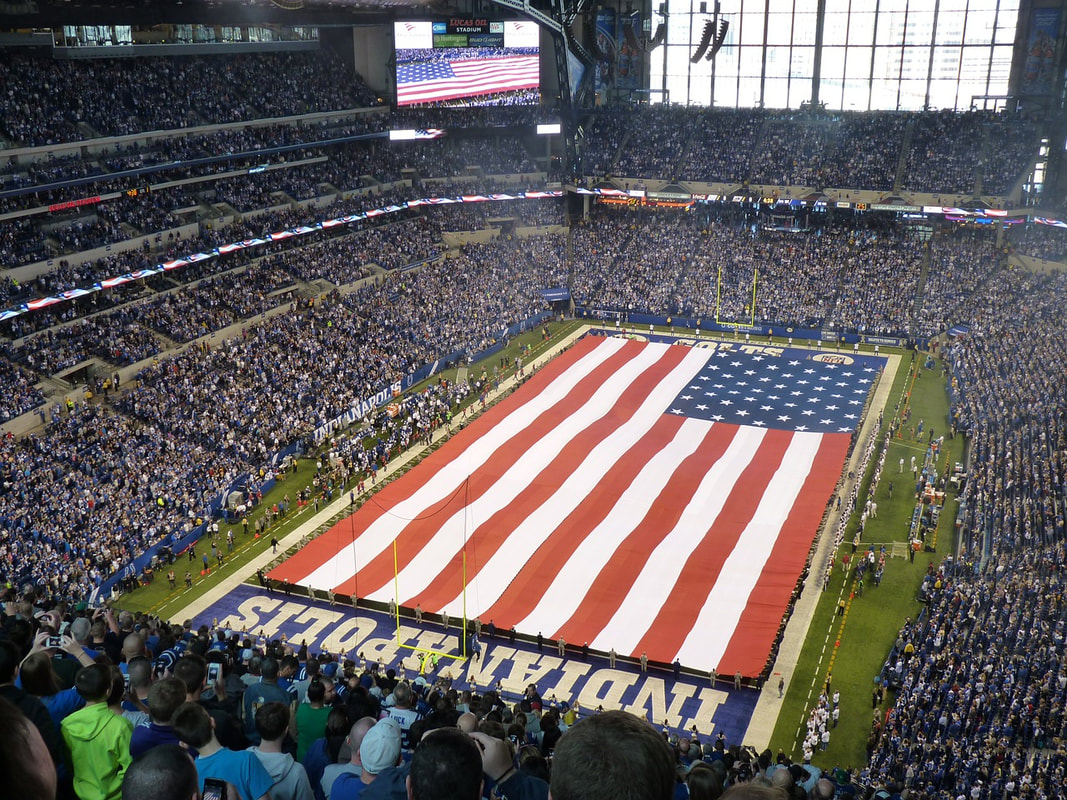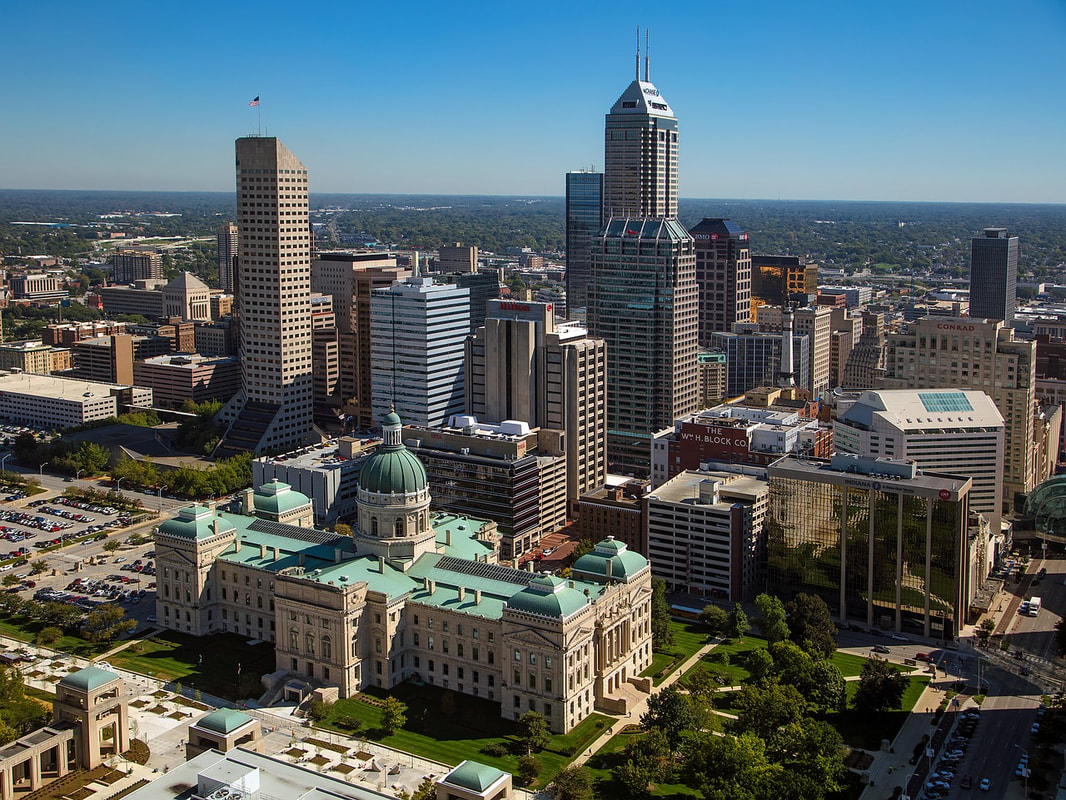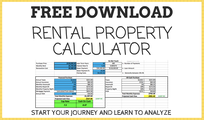|
Temperature: HOT Humidity: A LOT Where was I Labor Day Weekend? Indianapolis, Indiana. Home of my investment properties. My previous trip out there was a little over a year ago when I checked out My First Property after renovations were complete. Since that last trip in March of 2017, A LOT has happened. I sold My First Property, purchased and rented My Second Property, and acquired My Third Property (which is finishing up a light rehab right now). Suffice to say, I was super excited to get out there to see how the market has progressed, soak up the culture, actually see my new properties in person, drive neighborhoods, meet with my team, and shake hands with connections in the area! So, what value did I get out of the trip? HOLY CRAP...A TON OF VALUE: General Takeaways
If you can't tell by now, I HIGHLY recommend you visit your investment market. To be successful in this business, there are two major KEYS you need: 1. Strong relationships on the ground 2. An understanding of the market and its specific neighborhoods How do you master those two keys? Get your butt out to the market and see it for yourself. Peace and Happy Investing Jump In Nation! -Tyler
0 Comments
Featured OnWant to know the #1 question I get asked? I'll tell you. It's... "Why in the WORLD do you buy houses in Indianapolis?" Believe me, I understand why that question pops up all the time. Living in the San Francisco Bay Area and buying property over 2,000 miles away from home isn't the typical investing strategy. On the surface, it probably seems crazy. And, maybe it is. BUT, I'm sold on the city of Indianapolis. And aparently, many of you agree with me as well...having lost out on 4 deals this past week! Ahhhh the frustration! Anyways, I wrote an article for Roofstock: 10 Reasons I'll Buy More Rental Properties in Indianapolis. Check it out, give it a read, and let me know what you think about Indianapolis! After you read that article, take a look at the Indianapolis market overview below! Use my referral link below and GET $500 INSTANTLY applied to your Roofstock account!
Many people don't realize that owning real estate outside of their primary market is a feasible option, let alone an option with great potential upside. It's a way to spread out risk, earn better returns, take advantage of up-and-coming areas, and own in landlord friendly states. Now, I'm by no means an expert in real estate. I've only been doing this for a year, but here are five reasons to consider buying an out-of-state investment property: 1. Affordability: Look at the San Francisco Bay Area (where I live!), Seattle, or New York, and you'll see one major theme - housing is EXPENSIVE. Like, REALLY expensive $. Oh, and really competitive too. It's tough getting into those markets without cash or the right partner, but that shouldn't crush your dreams of becoming a real estate investor. Explore other cities and states that have a good acquisition price to rent ratio. A good place to start? The Midwest and South (USA). 2. Diversification: to protect your returns in real estate, or any investment really, it's smart to diversify. If you put all your money in one market, and it crashes, welp, there goes the value of all your real estate assets. By investing in different markets, your portfolio will be tied to multiple market cycles, and better protected against volatility in the long-term. 3. State Taxes: it's true, tax rates are different depending on state. Buying rental property in states or counties with lower property taxes (like Alabama, Colorado, or South Carolina) can generate extra savings and better returns. Because you have to file a tax return in the state you live in PLUS the state in which your investment property is in, states with lower income taxes can greatly impact your bottom line. 4. Entering Up-and-Coming Markets: there are a ton of up-and-coming cities out there right now. So, why not invest in one before it really blows up? Obviously, you can never predict the future, but here are some key indicators that could help in finding hot markets: -Companies are moving their headquarters there, or are opening up new branches -A decrease in average days properties are on the market -Job growth -Population growth 5. Rental Demand: some cities have a very strong rental market, where some are heavily owner occupied. Do your research around the country and figure out where populations prefer to rent. These are obviously areas in which your property will be in demand and very well may be outside of your home market. -Tyler When you live in a hot market, it's almost impossible to find a cash-flowing property. Some people are fine with breaking even (or taking a loss) on their investment, in hopes of appreciation. But, I find it very important to cash flow from Day 1. Nothing in real estate is guaranteed, and you definitely can't assume appreciation. After you've decided to Jump In and invest in rental real estate (long-distance or not), the first thing you need to choose is a market. One thing you need to remember, from Chris Clothier of Memphis Invest, is "cheap houses don't make a great market." The condition of the market is exponentially more important than the actual property. So, where are you going to invest your hard-earned money? This is not a question to be taken lightly as it can make or break your investment journey. You HAVE TO develop a relationship with the market you decide to enter and have strong connections on the ground. In my case, I traveled more than 2,300 miles away from my home market. Here's key criteria when selecting a market! 1. Steady Population Growth: Google your city name and take a look at population stats. You want to be in a city that's growing, as that proves demand. Population growth = more jobs, more renters, and it's a place where people WANT to live. 2. Diverse Economy: If your city is tied down to a single job industry, or one major company, what happens if that industry/company go obsolete? Jobs are eliminated...and say "bye bye" to renters. Choose a city with plenty of employers, industries, and occupations. 3. Entertainment Factor: This goes back to demand and desirability of your city. People want to live in a fun city, because where you live, largely dictates your life. Look for professional sports teams, major universities, night life, a music scene, etc. In my case, Indianapolis has an NFL team (Colts), an NBA team (Pacers), major universities (Butler, IUPUI), and up-and-coming hipster neighborhoods where hot restaurants and bars are popping up. 4. Rent to Acquisition Price Ratio: VERY VERY VERY important because this is where cash-flow is created. A general rule of thumb: find a market where properties bring in AT LEAST 1% of their purchase price in rent. For example: a rental property for $100,000 should bring in at least $1,000/month in rent. 5. Relatively Low Cost of Living: a market where the average cost of housing is no more than three times the average income of someone living there, shows that housing is still affordable. This is where you can buy a house, renovate it, rent it, and make a return on investment. These are the basics I look at when choosing a market. But, you must DO your due diligence. DO your research. MEET and TALK with people who have invested in your target market and with the individuals who are going to be your "boots on the ground." Most importantly - VISIT your market. Make connections, drive through town, see each neighborhood, soak up as much as you can. If you're prepared to plop down your money outside of your home market, you better know where it's going. -Tyler |
Investing |
Jump In |






